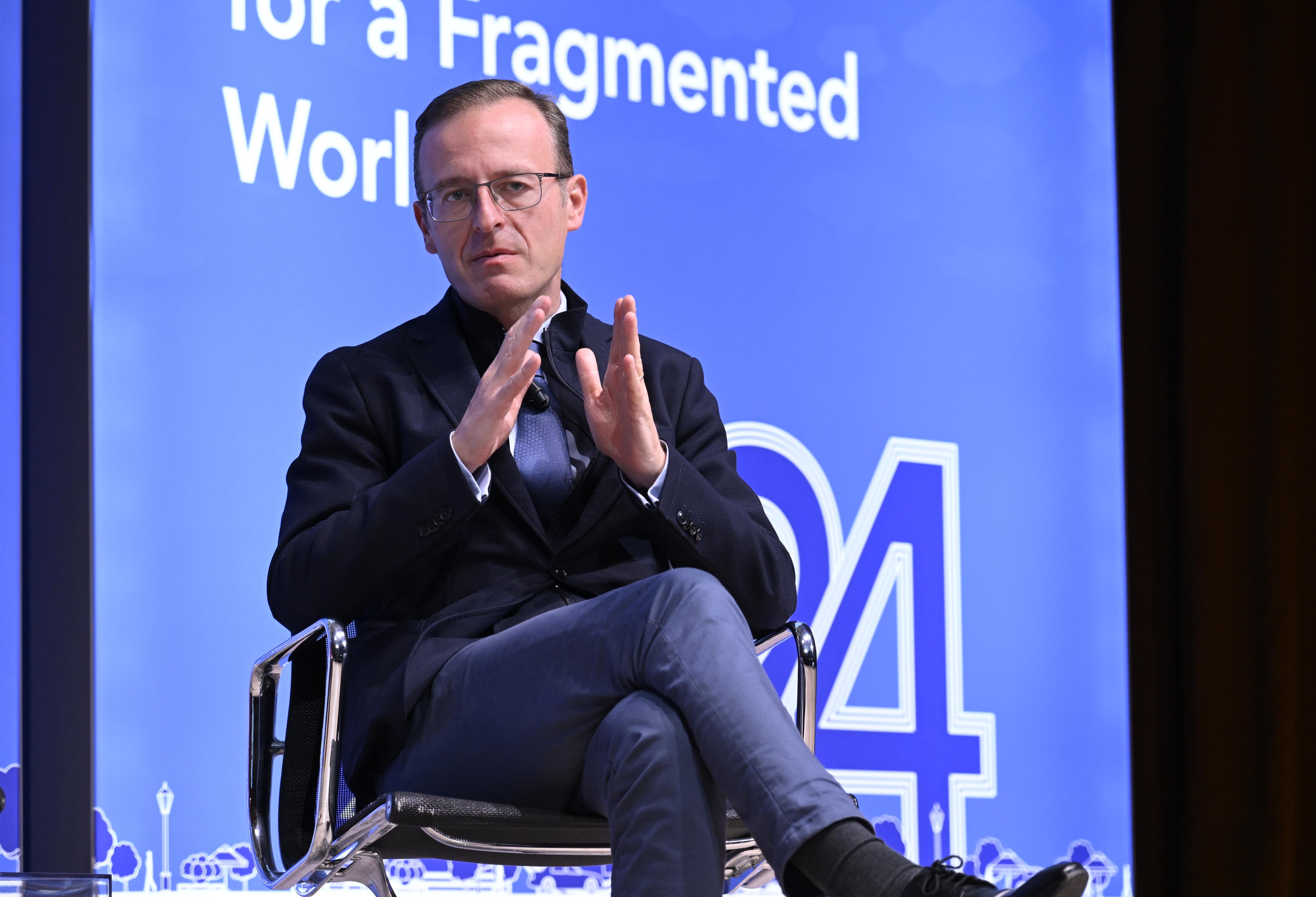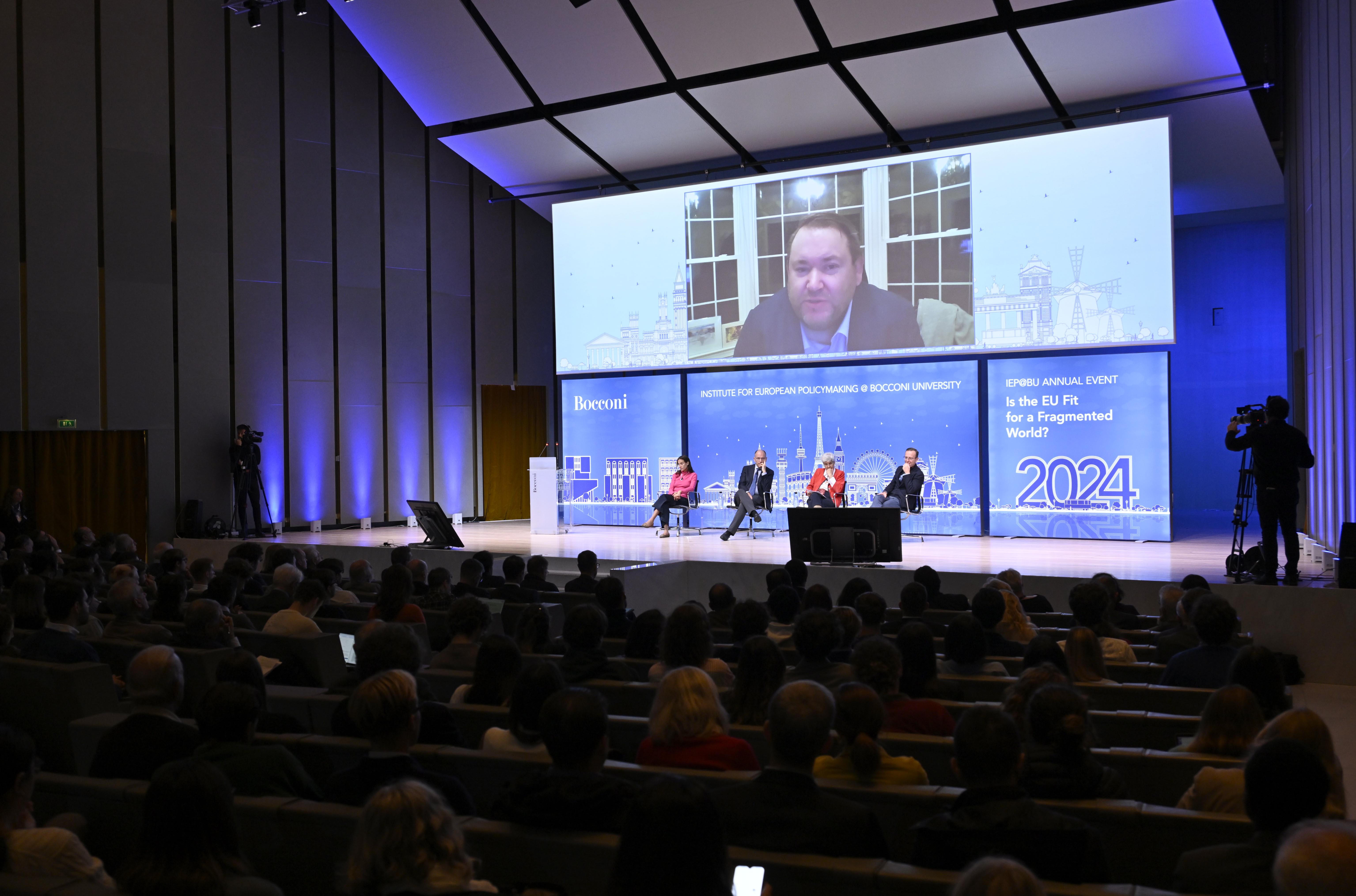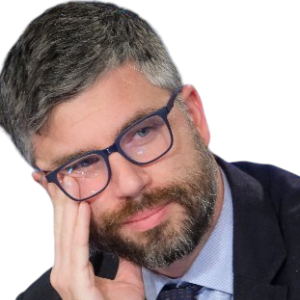How the EU has Lost its Touch to Strategic Thinking in Geopolitics
“The Commission would like to be taking the lead on defense policy, but defense remains the domain of Member States”. Thomas Gomart is one of the most influential experts on foreign relations and geopolitics at the EU level: he has been director of the Ifri, Institute Francais de Relationes Internationales, since 2015. An expert in Russian geopolitics and the history of international relations, he has recently published the book L'accélération de l'histoire. Les noeuds géostratégiques d'un monde hors de contrôle ( Éditions Tallandier, 2024).

“The Commission would like to be taking the lead on defense policy, but defense remains the domain of Member States”. Thomas Gomart is one of the most influential experts on foreign relations and geopolitics at the EU level: he has been director of the Ifri, Institute Francais de Relationes Internationales, since 2015. An expert in Russian geopolitics and the history of international relations, he has recently published the book L'accélération de l'histoire. Les noeuds géostratégiques d'un monde hors de contrôle (Éditions Tallandier, 2024).
Thomas Gomars participated to the recent IEP@BU Annual Event - Is the EU Fit for a Fragmented World?. On that occasion, we sat down for an interview on how the EU is dealing with main geopolitical challenges.
Thomas Gomart, I would like to start by discussing this idea of the “double standard” you mentioned in your panel at the IEP@BU Annual Event. How does having a double standard, say with Ukraine and Israel, impact the EU's geopolitical approach?
First, we should remember that the notion of a "double standard" is a key Russian argument, and it's not new. It’s been used for many years, long before the war in Ukraine. Second, it’s important to note that the EU, within the transatlantic framework, has long relied on sanctions as a tool.
Back in 1991, the EU sanctioned six countries, whereas now more than 36 countries are under European sanctions. So, in a way, sanctions have become one of the main instruments of the EU’s external politics. And third, the three most sanctioned countries in the world—Russia, Iran, and North Korea—are now converging into a military alliance in Ukraine. This is a very structural development.
Countries from the so-called Global South criticize the EU for overusing sanctions. One key argument, which has a real political effect, is that Europe sanctions Russia for its actions in Crimea and Ukraine but doesn’t impose sanctions on Israel for its actions in the West Bank, which also violate international law. This argument resonates strongly in the Global South.
Do you think it’s feasible for the EU to impose sanctions on Israel? Are we getting closer to that, given the ongoing conflict, or does the internal EU decision-making process—particularly Germany’s position and the veto powers—prevent such a move?
When it comes to Israel, the attacks on October 7, 2023, were a clear turning point. The massive terrorist attacks carried out by Hamas were a trauma for Israel, shattering the myth that Israel is a sanctuary capable of fully securing its population. That is no longer the case.
This event has also brought the Palestinian issue back to the forefront, an issue that had been downplayed by Israel, the Gulf countries, and the West. The Palestinian cause is now more alive than ever.
This raises the question of a possible political solution, such as the two-state solution. However, we’re far from that, largely due to Israel’s reaction.
When a country faces militarized terrorism, as Israel did, it must choose between underreaction and overreaction. Israel has clearly chosen overreaction in Gaza, leading to significant civilian casualties, tied to its unrealistic goal of eradicating Hamas.
We’re also seeing a new phase in the conflict.
Since April, this conflict has taken on an interstate dimension, with Iran launching strikes on Israel. Although Israel was caught off guard by Hamas, it is not similarly vulnerable when it comes to Hezbollah or Iran. In fact, since last September, Israel has decapitated much of Hezbollah's leadership and carried out significant operations in Lebanon. The question now is whether Israel will go further in confronting Iran. We should remember that Israel previously destroyed Iraq’s and Syria’s nuclear programs, and some in the Israeli government believe now is the right time to corner Iran.
How does the EU’s response to this crisis impact its geopolitical relevance? Are we moving toward a more unified European government, where a strong EU Commission leads geopolitical initiatives, or will the divided positions of the European Council and Member States prevent meaningful action?
First, the EU is united on Ukraine but divided on Israel and Palestine, and those divisions run deep. Five countries—Germany, France, Italy, the UK, and the U.S.—have clearly supported Israel’s right to defend itself after the October 2023 attacks. This idea that Israel must be secured remains central to many European strategic cultures, but not all.
As for the balance between the European Commission and the European Council, you’re right—the Council appears weak due to political situation in Germany and France. The traditional Franco-German leadership isn’t there, and the center of gravity seems to be shifting eastward, especially concerning Ukraine.
Regarding the South, things are less clear. For some countries, the Commission has overstepped its authority, which could lead to tensions between the Council and the Commission.
You also mentioned that the Commission would like to be taking the lead on defense policy, but defense remains the domain of Member States. There’s room for better integration of Europe’s military industries, but I don’t see member states allowing the Commission to take over defense policy.
European military spending is far higher than Russia’s, yet there’s a public perception that Russia has switched to a "war economy" and is prepared to keep fighting indefinitely. Do you think Russia is stretching its capabilities to the limit?
Russia is engaged in a colonial war under nuclear protection. This nuclear power rhetoric has inhibited Europe’s support for Ukraine to some extent.
Additionally, Europeans find themselves in a tricky situation because they began disarming collectively in the 1970s. At that time, Europeans spent 3 to 4 percent of their GDP on defense. After the collapse of the USSR, military spending decreased globally for a decade, but after 9/11, all major powers—like the U.S., China, Russia, and others—dramatically increased their military spending. Europeans, however, continued to decrease theirs.
We now face two generations of structural disarmament in Europe, while our competitors have gone through a generation of rearmament. We’re in catch-up mode, and it’s uncomfortable. Meanwhile, European elites have been more focused on economic integration and have lost touch with strategic thinking, particularly regarding nuclear issues and military capabilities.
In contrast, Russia has pursued a consistent strategy. When Putin came to power in 2000, he quickly moved to rebuild Russia’s military prestige by renationalizing the energy sector to fund military reconstruction. After Putin’s return to the Russian Presidency in 2012, he openly declared that Russia and Ukraine were one people—an argument dating back to 2013. This consistency stands in contrast to Europe, which lacks long-term plans beyond maintaining living standards.
The European debate often feels esoteric to the general public due to the overuse of acronyms and jargon. In the defense and geopolitical space, which term do you think is particularly misunderstood or not fully understood by the general audience?
There are many, but one that comes to mind is "EPC"—the European Political Community. This initiative, launched after the invasion of Ukraine, gathers 44 European countries to discuss security and energy security issues. It’s an interesting concept because it raises difficult historical questions about whether we can anticipate more convergence among European countries in opposition to Russia.

We now face two generations of structural disarmament in Europe, while our competitors have gone through a generation of rearmament. We’re in catch-up mode, and it’s uncomfortable. Meanwhile, European elites have been more focused on economic integration and have lost touch with strategic thinking, particularly regarding nuclear issues and military capabilities
